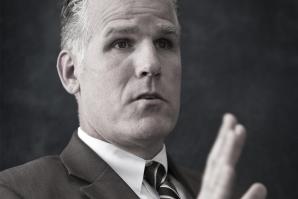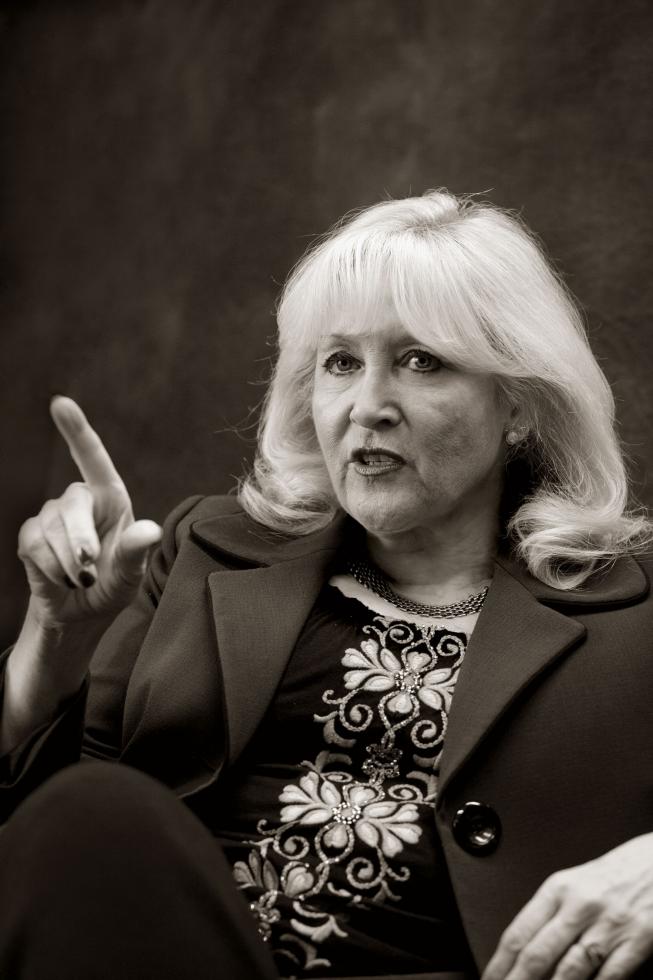Assemblywoman Connie Conway, a Tulare County Republican, made her presence felt immediately in the California Legislature. First elected in 2008, Conway’s GOP colleagues unanimously voted her Assembly Minority Leader barely two years later. Since then, the affable, plainspoken Conway, whose 34th Assembly District is the largest in California, has helped craft her party’s agenda with a dominant focus on easing government regulations and improving the state’s business climate. But while Republicans recently have made historic gains in Congress and statehouses across the country, California’s GOP has plummeted in both membership and political power, including being shut out of every statewide elected office. We sat down with Conway recently to discuss these challenges.
Comstock’s: Do you have a specific
legislative priority for this year?
Conway: Since I’ve gotten here, whatever
legislative priority I thought I had has been wrapped up in jobs
and the economy. It might sound trite, but for me it is the basis
point of everything else that needs to happen in California.
Comstock’s: Both parties are facing major
challenges in maintaining their membership numbers, but the
California GOP is struggling in particular. Assess where you see
the California Republican Party right now.
Conway: I’m an eternal optimist. When people ask
me how it feels to be the leader of the ‘irrelevant people,’ I
take it in stride because I don’t feel irrelevant to the people
who sent me here, and I don’t feel irrelevant to the
special-interest group that I feel I represent — the California
taxpayers. However it might appear on the outside, I think
California has a conservative streak. I look at the last
election, when people were voting on several tax issues we
opposed, and a significant majority said, to quote a famous
boxer, ‘No mas.’ So while 68 percent of the voting public are not
registered Republicans, they very conservatively said, ‘No, we
don’t want to do that.’ That was Republicans, Democrats, the
decline-to-state, all of them. So in that way, we still are the
Grand Old Party.
Comstock’s: OK, but a lot of the same people
who identify themselves as fiscal conservatives are also very
disenchanted with the GOP over its positions on social issues.
What is your perspective on that?
Conway: That’s a valid point. We’re all the sum
of life experiences and our beliefs, and we have a lot of
principled Republicans who are very firm in their beliefs. But in
my job as a Republican leader, I have to ask if we should be
talking about those issues when we’re here in the Capitol.
Sometimes this Legislature wants to legislate things that most
people think we shouldn’t have our noses in, and I’m talking
about both sides of the aisle. And it is also true that even
Republicans are all over the map when it comes to various social
issues. Some feel more strongly about certain social issues than
others. I think it is very individual. But there is a driving
thought that unites all Republicans, and that is fiscal
conservatism. That’s where I would like us to concentrate our
efforts, because that’s going to address the biggest problems in
California. I won’t call these other things superficial, but they
can’t be our priority.
Comstock’s: Along those lines, a lot of
folks have long argued that the GOP’s stance on immigration is
alienating the Latino community, a demographic group that in many
ways seems a perfect fit for you both fiscally and socially. How
do you see this?
Conway: I think there are some of us in
leadership in the Republican Party that recognize the Latino
community is a constituency we have a lot in common with. I think
we haven’t done a good enough job as Republicans in defining what
is really important to us and what we really stand for while also
reaching out to others at the same time. I think a lot of these
communities, be they the Latino community or others, have a
perception of us that other people have told them. There are
always loud voices on both sides that get all the attention. But
some of us that want to take a different tack are getting more
vocal. We want to define ourselves as Republicans, and it is our
job to reach out to those communities and let them know who we
are and what we stand for. But there is more to it than that.
Someone once told me that outreach is good, but inclusion is
better. That has always stuck with me.
Comstock’s: Hyper-partisanship has become a
major issue at all levels of government. It has become so bad
that many lawmakers in both parties have chosen to leave public
service over it. What is your perspective on being able to work
with Democrats in this Legislature?
Conway: I understand the public’s perception of
the constant bickering and turmoil. I think a lot of this is
exacerbated by our economic struggle, be it nationally or here in
California. If times were good, we wouldn’t be fighting so much.
That always makes it tougher for everyone. But we can function,
and we do function and on some things we are really OK. Of
course, we do have disagreements here, and I’m sure Democrats are
just as frustrated with us as we are with them at times. They see
us as being stubborn and the guys who just won’t go along to get
along, but I don’t think that’s what people really want. They
want us to look at both sides of the coin on issues and to hear
those issues discussed more thoroughly. If anything, we don’t
have enough discussion in this building.
Comstock’s: How do you fix that?
Conway: If I was queen, I would limit the
ability to put bills forward. Whatever space you are given, you
try to fill it up, which is one of the reasons we get arguments
over so many of the silly things that people think make us look
crazy. If we limited that opportunity, it would really force
lawmakers to focus on priorities. If every lawmaker could only
introduce five pieces of legislation — including the highway
naming bills and all the ‘Oh, Happy Day’ resolutions we get —
people would really have to make choices about what they put
their effort into. I would really like us to spend more time in
thorough, thoughtful discussion of those things, which I don’t
think would be such a fight either. Both sides of the aisle
really do care about things like education, but we get so wrapped
up in fighting about trivial little things, and I think the
public is tired of it.
Comstock’s: What about the move to go back
to a part-time Legislature?
Conway: I understand why people would say, ‘Get
rid of all those bums.’ But until you limit the ability to pass
bills, it doesn’t matter if we’re here full time or for just one
day. If we were here for only a day it might mean we just pass
2,500 really bad bills. Last year we passed about 2,500 bills,
and (Gov. Jerry Brown) only signed about 900 of them. So why did
we have all of those bills in the first place?
Comstock’s: Will voters endorse the
governor’s tax hike proposal?
Conway: I know the governor is very wedded to a
tax increase, but I just can’t believe the people have an
appetite for more taxes. I just know the people I talk to —
Democrats, Republicans, red, green, blue, purple party — are not
grooving on a tax hike right now.
Comstock’s: Will we get public employee
pension reform this year?
Conway: We better. People have got to come to
the table and figure something out. If we don’t, it will
eventually end up on the ballot, and nobody is going to like what
that looks like.
Recommended For You

GOP on Deck
Can the Republican contenders overcome Brown in 2014?
With just over a year until the midterm elections, California’s next gubernatorial race is starting to take shape.

Realign. Redevelop.
Counties director Matt Cate thinks California is righting its course
No one can accuse Matt Cate of avoiding the hard jobs. During his four years at the helm of California’s state prisons, he guided the system through some of its toughest times, including historic budget cuts and the implementation of Gov. Jerry Brown’s controversial 2011 realignment plan, which shifted tens of thousands of offenders to local jails and parole supervision.



